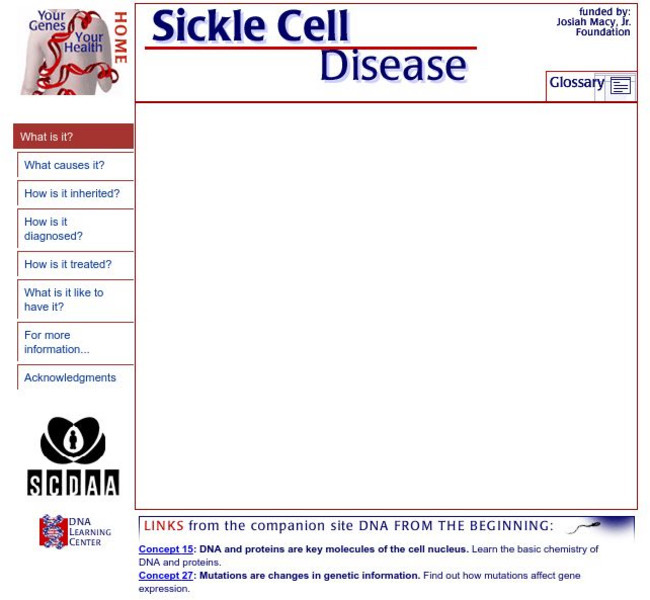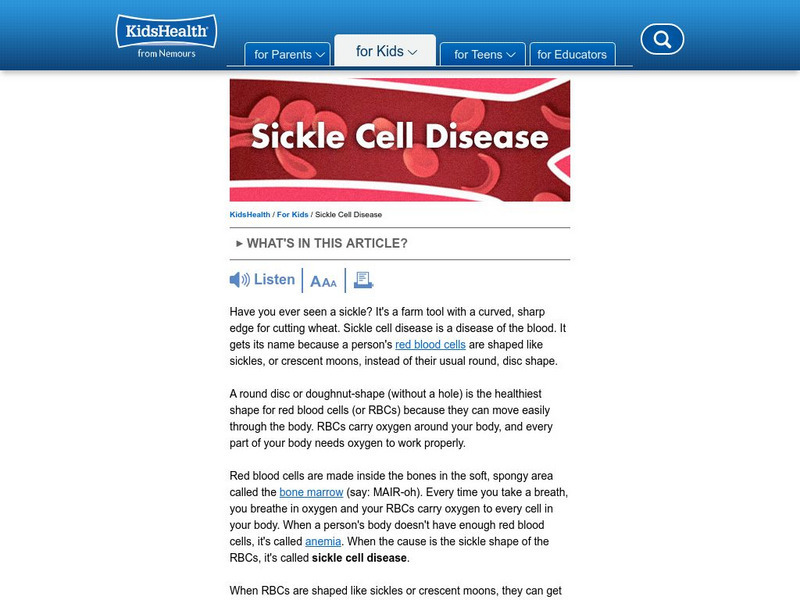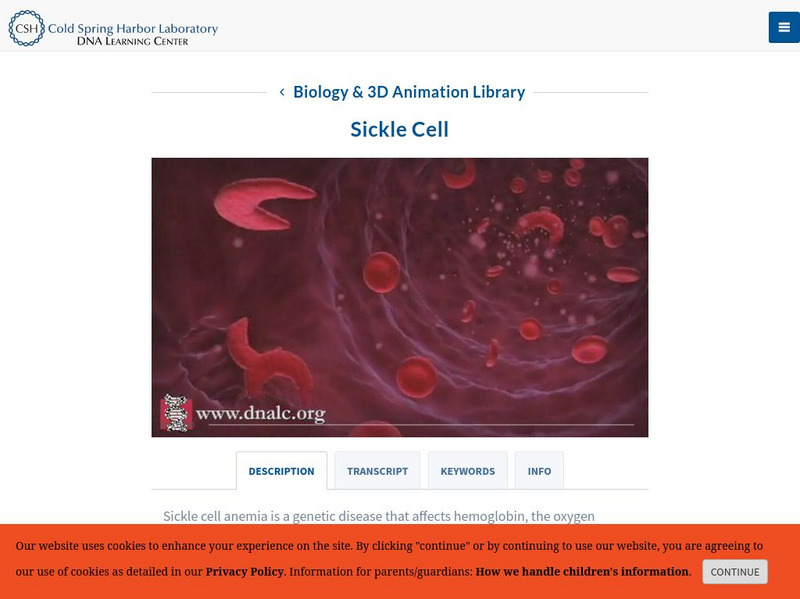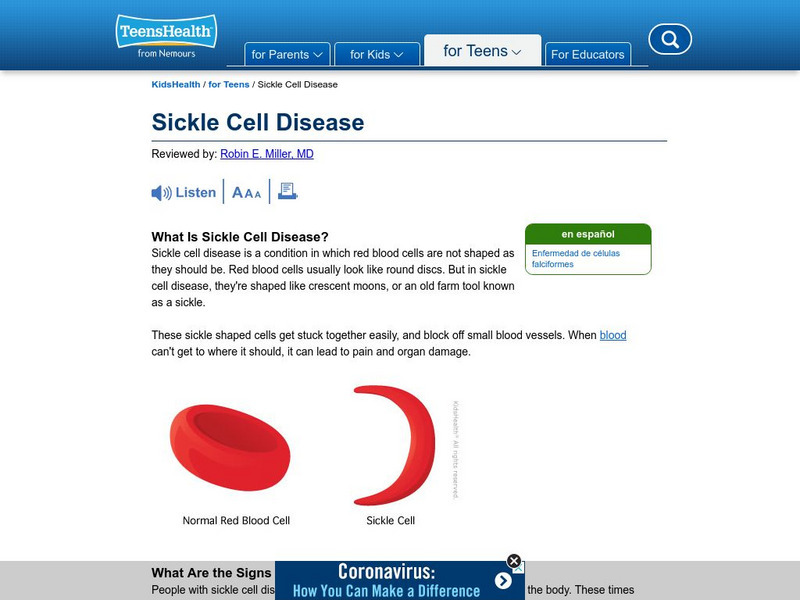Howard Hughes Medical Institute
The Making of the Fittest: Natural Selection in Humans
Sickle cell disease only occurs when both parents contribute the trait, and mostly in those of African descent. Where did it come from? How did it evolve? Tony Allison, a molecular biologist, noticed a connection between sickle cell and...
Curated OER
Human Blood: Microviewer
In this human blood: microviewer worksheet, learners answer questions about blood, red blood cells, white blood cells, phagocytosis, blood type B, fibrin, sickle cells, and infected blood. Students also draw quick sketches of a human...
Curated OER
Your Body, Your Health
Young scholars study sickle cell anemia and other genetic disorders. In this investigative lesson students create a poster and present it to the class on a certain disorder.
Curated OER
The Meaning of Genetic Variation
Students investigate variation in the beta globin gene by identifying base changes that do and do not alter function, and by using several Internet-based resources to consider the significance in different environments of the base...
Centers for Disease Control and Prevention
Centers for Disease Control: Sickle Cell Has Many Faces
Information about Sickle Cell Disease: what it is, what causes it, who is most at risk for it, what the effects are, and how to control it through living a healthy lifestyle.
Harvard University
Joint Center: Information Center for Sickle Cell and Thalassemic Disorders
Get a look at sickle cell disease, thalassemia, and disorders of iron metabolism with this informative site! Site includes overview of research done, management of the diseases, and new developments in the field. Also included is useful...
PBS
Pbs Learning Media: Sickle Versus Normal Cell
Background image of normal disc-shaped red blood cells from the University of Utah. Inset shows sickled red blood cells, curved and rigid, from the Virginia Medical College.
Cold Spring Harbor Laboratory
Your Genes, Your Health: Sickle Cell
A very easy to understand site on sickle cell. Learn about the causes, symptoms and treatment of sickle cell disease.
Curated OER
Kids Health: Do You Know About Sickle Cell Anemia?
Good basic explanation of what this disease is, how it affects people who have it, and what treatments doctors and nurses use to help.
University of Utah
University of Utah: Genetic Science Learning Center: Examples of Single Gene Disorders
Use this drop-down menu to explore singe gene disorders such as Cystic Fibrosis, Huntington Disease, Sickle Cell, and more. Learn the symptoms and features of the disease, how to treat and/or manage the disease, and links to additional...
Harvard University
Harvard Medical School: History of Sickle Cell Disease
This site is put out by a professor of the Harvard Medical School. It contains factual information on Sickle Cell Disease and the information is set up by links under different subject headings. This is a great site to check out on the...
Cold Spring Harbor Laboratory
Dolan Dna Learning Center: Disease & Mutation: Sickle Cell
A brief overview of Sickle cell anemia, a genetic disease that affects hemoglobin in the blood. [1:30]
Other
Sickle Cell Anemia Association: Sickle Cell Anemia
The Sickle Cell Anemia Association invites you to "visit often to get the latest news and available information" on sickle cell anemia. Visit the FAQ section for quick facts and answers to basic questions.
American Academy of Family Physicians
Aafp: Practical Tips for Preventing a Sickle Cell Crisis
This article from the American Family Physician journal provides basic information about what sickle cell anemia is and some measures that can be used to control the pain.
Khan Academy
Khan Academy: What Causes Red Blood Cells to Sickle?
The resource from Khan Academy and the Association of American Medical Colleges provides study content for the MCAT. This resource provides questions related to the structure and characteristics of hemoglobin proteins.
Curated OER
Kids Health: Sickle Cell Anemia
This article gives information about sickle cell anemia, a disease caused by mutations of the gene that forms red blood cells. Provided are answers to the following questions: "What Do Doctors Do?" and "What Can Teens Do to Stay Well?"
















